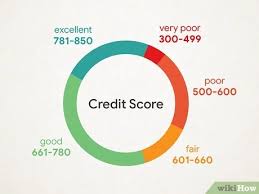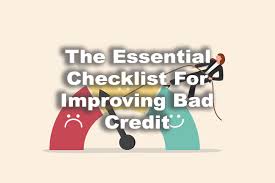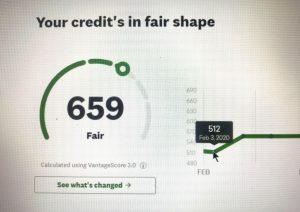In today’s complex financial world, understanding how to check your credit score is more than just a skill, it’s a crucial financial lifeline.
Your credit score is a powerful numerical representation of your financial reliability, acting as a key that can unlock or block important life opportunities. Yet, for many, the process of checking and understanding a credit score feels like navigating a maze blindfolded.
This comprehensive guide is designed to transform you from a hesitant novice to a confident financial navigator.
We’ll break down everything you need to know about how to check your credit score, demystify the process, and provide you with actionable insights that can empower your financial journey.
Table of Contents
Understanding Credit Scores: The Basics
Your credit score is far more than just a random number. It’s a sophisticated calculation that reflects your financial history and reliability. Think of it as a financial report card that lenders, landlords, and even some employers use to assess your trustworthiness.
The standard credit score ranges from 300 to 850, with each point carrying significant weight. Here’s how the score is typically calculated:
- Payment History (35%): Your track record of paying bills on time
- Credit Utilization (30%): How much of your available credit you’re using
- Length of Credit History (15%): How long you’ve been managing credit
- Credit Mix (10%): The variety of credit types you have
- New Credit Inquiries (10%): Recent applications for new credit
Why Your Credit Score Matters
Imagine your credit score as a financial passport that can either smooth your path or create unexpected hurdles. It’s not just about getting a loan—it impacts multiple aspects of your life.
When you know how to check your credit score, you gain insights into:
- Loan Approval Chances: Higher scores mean easier loan approvals
- Interest Rates: Better scores can save you thousands in interest
- Rental Applications: Landlords often check credit scores
- Employment Opportunities: Some employers review credit history
- Insurance Rates: Your score can influence premium costs
Credit Score Ranges and Their Implications
| Credit Score Range | Classification | Typical Implications |
| 300-579 | Poor | Difficult to obtain credit |
| 580-669 | Fair | Higher interest rates |
| 670-739 | Good | Reasonable credit terms |
| 740-799 | Very Good | Favorable loan conditions |
| 800-850 | Exceptional | Best interest rates and terms |
Free Methods to Check Your Credit Score
Gone are the days when checking your credit score meant paying hefty fees. Multiple free options now exist for those wondering how to check their credit score without breaking the bank.
Key free methods include:
- AnnualCreditReport.com: The official government-authorized site
- Credit card issuer programs (many offer free score tracking)
- Bank online banking platforms
- Free credit score websites like Credit Karma
- Some credit card companies’ online portals
Step-by-Step Guide to Checking Your Credit Score Online
Ready to dive in? Here’s a foolproof method for checking your credit score online:
- Choose a Reputable Provider
- Select from government-authorized sites or well-known financial platforms
- Ensure the site uses secure, encrypted connections
- Create an Account
- Provide necessary personal information
- Use a strong, unique password
- Enable two-factor authentication
- Identity Verification
- Prepare personal documents
- Be ready to answer security questions
- Expect to provide information like previous addresses or loan details
- Review Your Credit Report
- Carefully examine each section
- Look for any discrepancies or unfamiliar accounts
- Note the detailed breakdown of your credit history
Understanding Your Credit Report
Your credit report is a financial biography. It tells the story of your financial decisions, revealing:
- Personal Information: Name, address, Social Security number
- Credit Accounts: Open and closed accounts
- Credit Inquiries: Recent applications for credit
- Public Records: Bankruptcies, tax liens, civil judgments
Red flags to watch for:
- Accounts you don’t recognize
- Late payments you don’t recall
- Incorrect personal information
- Suspicious credit inquiries
Improving Your Credit Score: Actionable Strategies
After learning how to check your credit score, the next step is improvement. Consider these strategies:
Short-Term Tactics:
- Pay all bills on time
- Reduce credit card balances
- Avoid opening multiple new credit accounts
Long-Term Strategies:
- Maintain a mix of credit types
- Keep old credit accounts open
- Regularly monitor your credit report
- Address errors immediately
Credit Score Monitoring Tools and Apps
Technology has revolutionized how we track financial health. Top monitoring tools offer:
- Real-time credit score updates
- Fraud alerts
- Detailed credit report analysis
- Identity theft protection
Recommended apps:
- Credit Karma
- Credit Sesame
- NerdWallet
- MyFICO
Protecting Your Credit Score
In an age of digital threats, protecting your credit score is paramount:
Prevention Strategies:
- Use strong, unique passwords
- Enable two-factor authentication
- Be cautious of phishing emails
- Regularly update software and apps
- Consider identity theft protection services
What to Do If Compromised:
- Immediately contact credit bureaus
- Place a fraud alert
- File a police report
- Monitor accounts closely
Conclusion
Understanding how to check your credit score is more than a financial skill—it’s a form of self-empowerment. By following this guide, you’ve transformed from a confused observer to a confident financial strategist.
Skale Money Key Takeaways
- Your credit score is a dynamic, manageable number
- Regular monitoring is crucial
- Multiple free resources exist
- Improvement is always possible
Frequently Asked Questions (FAQ)
How Often Should I Check My Credit Score?
- At least annually
- Before major financial decisions
- Free to check without score impact
Does Checking My Credit Score Lower It?
- Soft inquiries have no impact
- Hard inquiries may cause minimal, temporary decrease
What’s the Fastest Way to Improve My Credit Score?
- Consistent on-time bill payments
- Reduce credit utilization
- Maintain a diverse credit mix
Are Credit Monitoring Services Worth It?
- Provide additional security
- Offer early fraud detection
- Some quality free options available
How Long Does Negative Information Stay on My Credit Report?
- Most negative items: 7 years
- Bankruptcies: Up to 10 years
- Positive information can remain longer
Take control of your financial future today. Start by checking your credit score using the methods outlined in this comprehensive guide. Your financial health depends on understanding and managing your credit effectively.
![]()




